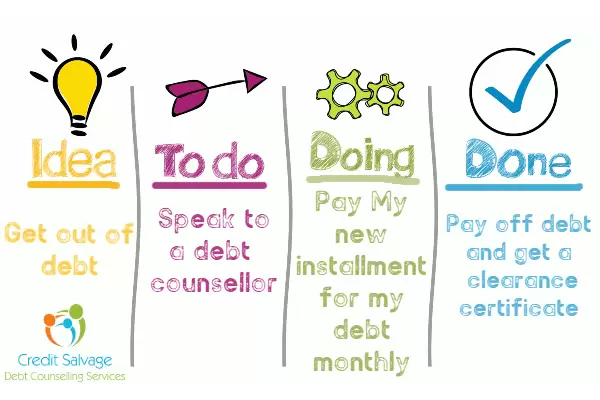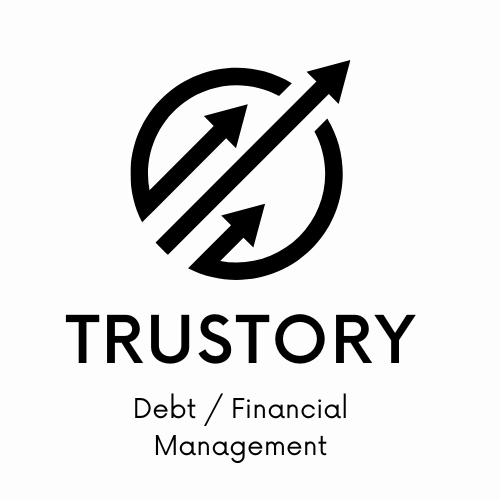
Debt Review Process Step-by-Step: Your Complete Guide to Financial Recovery
Estimated reading time: 15 minutes
Key Takeaways
- Debt review is a legal process in South Africa to help over-indebted consumers restructure their debts.
- The process involves several steps from consultation to completion, including assessment, application, negotiation with creditors, and court approval.
- Benefits of debt review include legal protection from creditors, protection of assets, and a structured repayment plan.
- Cons include impact on credit rating, inability to access new credit during the process, and strict adherence to the repayment plan.
- Understanding the debt review process, including fees and duration, helps consumers make informed decisions about financial recovery.
Table of contents
- Introduction
- What is Debt Review?
- Definition and Objectives
- Who Qualifies for Debt Review
- Difference Between Debt Review and Insolvency
- Step-by-Step Guide to the Debt Review Process
- Step 1: Consultation with a Debt Counsellor
- Step 2: Submission of Debt Review Application
- Step 3: Assessment by the Debt Counsellor
- Step 4: Proposal to Creditors
- Step 5: Implementation of the Debt Review Plan
- Step 6: Completion of Debt Review
- How Long Does Debt Review Take?
- Debt Counselling Fees in South Africa
- Debt Review Pros and Cons
- Debt Review Removal in South Africa
- Conclusion
- Additional Resources
Introduction
Are you drowning in debt and unsure where to turn? Understanding the debt review process step-by-step is crucial for regaining financial stability. This comprehensive guide will walk you through each stage of debt review in South Africa, from consultation to completion, empowering you to make informed decisions about your financial future. [Source]
Debt review is a structured legal process in South Africa designed to help consumers manage and repay their debts when they are struggling financially. With many South Africans facing financial hardship, this formal debt counseling process offers a lifeline for those who feel overwhelmed by their financial obligations. [Source]
What is Debt Review?
Definition and Objectives
Debt review, also called debt counselling, is a legal process where a registered debt counsellor helps over-indebted consumers restructure their debt repayments to affordable levels. This process was established under the National Credit Act to provide relief for consumers struggling with debt. [Source]
The main objectives of debt review include:
- Preventing legal action from creditors
- Creating a manageable repayment plan based on your income
- Protecting your assets (like your home and car) from repossession
- Consolidating multiple payments into one affordable monthly amount
[My Debt Hero]
[Standard Bank]
[Meerkat]
Who Qualifies for Debt Review
You may be eligible for debt review if you are:
- A South African citizen or resident
- Earning a regular income
- Struggling to meet your monthly debt obligations
- Over-indebted, meaning your expenses and debt repayments consistently exceed your income
The assessment of over-indebtedness considers your entire financial picture, including all income sources and debt obligations. Not everyone qualifies for debt review—you must have some income to support restructured payments. [Source]
Difference Between Debt Review and Insolvency
It’s important to understand the distinction between debt review and insolvency:
Debt Review:
- Restructures your existing debts while allowing you to maintain your assets
- Enables you to repay debts over an extended period
- Provides legal protection from creditors during the repayment process
- Has a less severe impact on your credit profile long-term
Insolvency (Sequestration):
- Involves a legal declaration of inability to pay debts
- Often results in liquidation of assets to settle outstanding balances
- Impacts your credit record for up to 10 years
- Is generally considered a last resort when debt review isn’t viable
Step-by-Step Guide to the Debt Review Process
Understanding the debt review process step-by-step will help you navigate this journey effectively. Let’s break down each phase in detail: [Source]
Step 1: Consultation with a Debt Counsellor
Assessment
The first step is contacting a registered debt counsellor for an initial consultation. Always verify that your chosen counsellor is registered with the National Credit Regulator (NCR) before proceeding.
During this consultation, the counsellor will:
- Evaluate your financial situation thoroughly
- Review your monthly income and living expenses
- Assess your total outstanding debts and credit agreements
- Determine if you qualify for debt review
Documentation
Be prepared to provide the following documents for the assessment:
- Latest payslips or proof of income
- Bank statements (typically the last 3-6 months)
- Copies of your ID or passport
- All credit agreements and statements from your creditors
- List of monthly expenses
This paperwork helps the debt counsellor get an accurate picture of your financial situation and determine the best way forward.
Frequently Asked Questions
1. Can I exit debt review early?
Exiting debt review before completion can have serious consequences, including loss of legal protection and potential legal action from creditors. It’s important to consult with your debt counsellor before making any decisions.
2. Will debt review affect my employment?
Generally, debt review should not affect your current employment. However, certain professions that require credit checks may be impacted. It’s advisable to check your employment contract or speak with your HR department if concerned.
